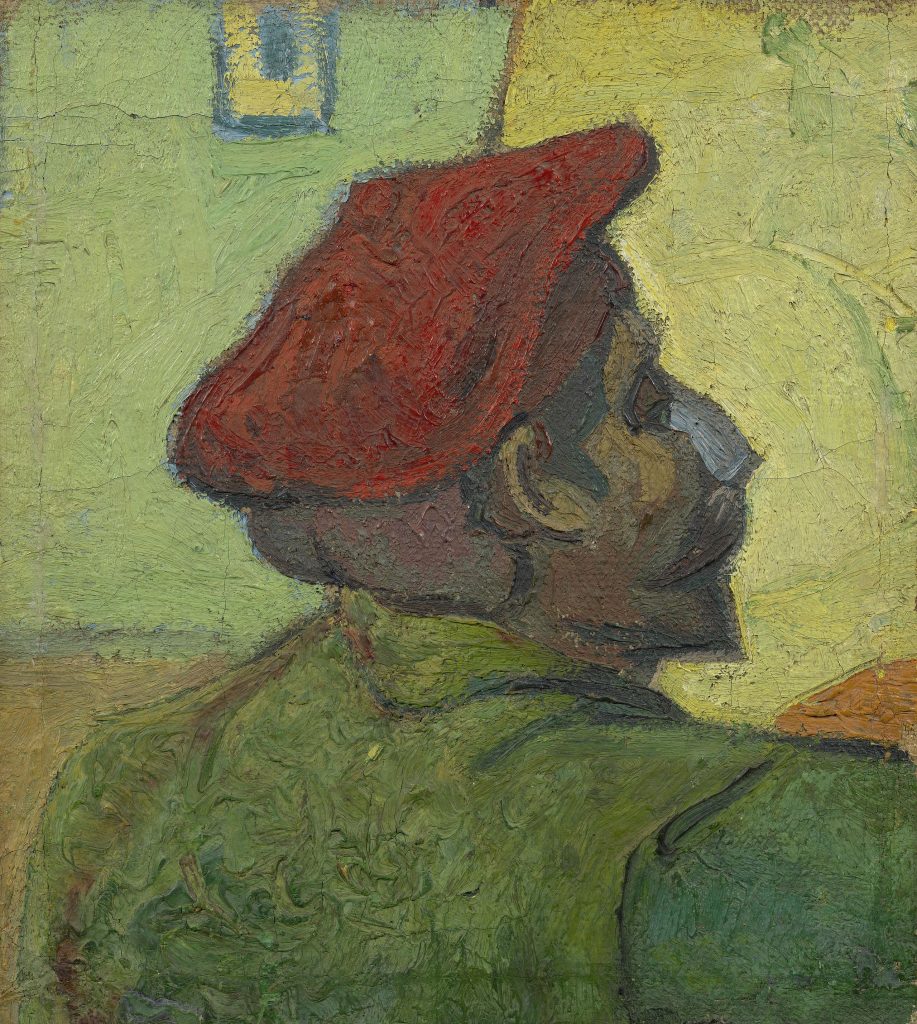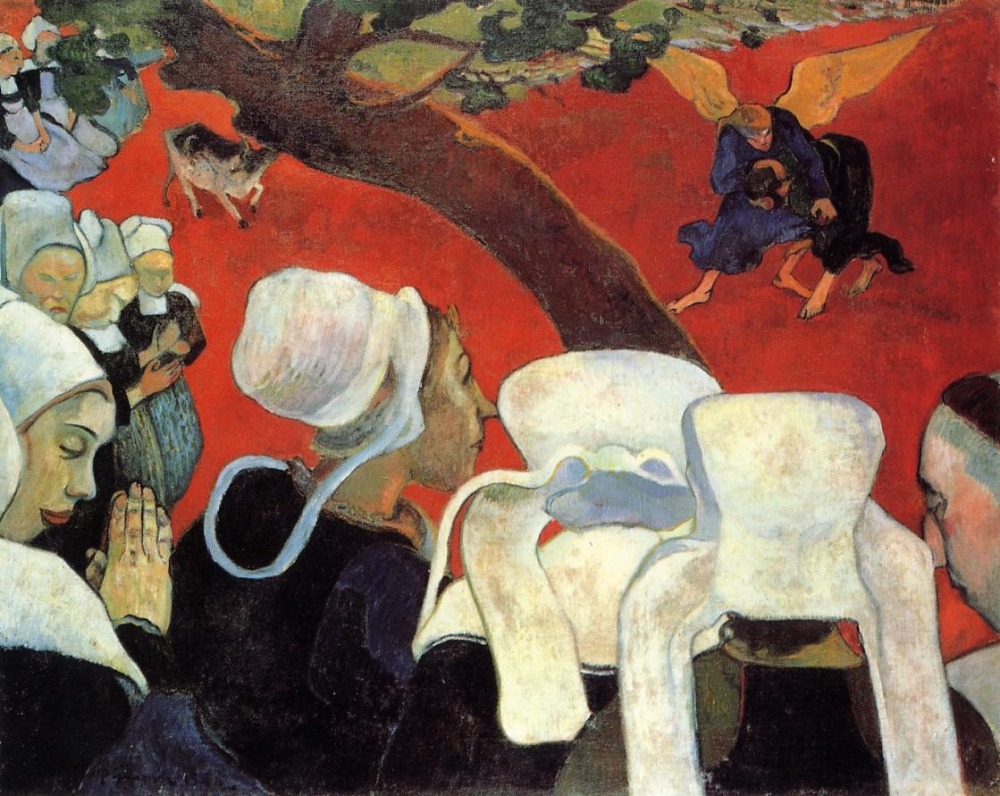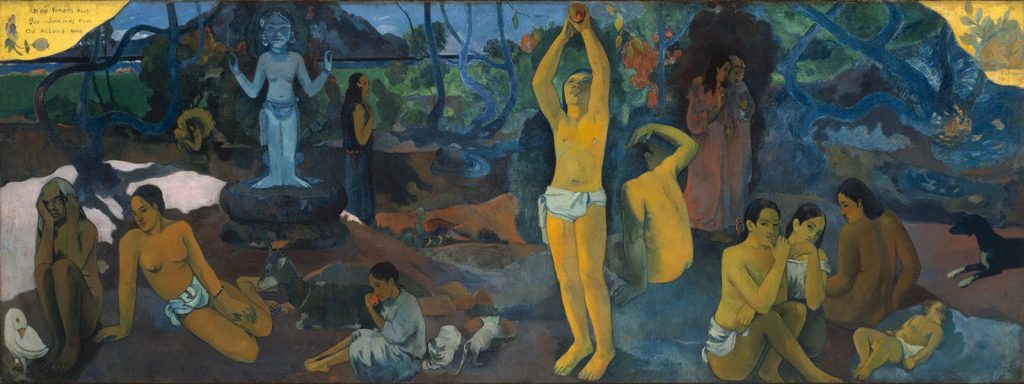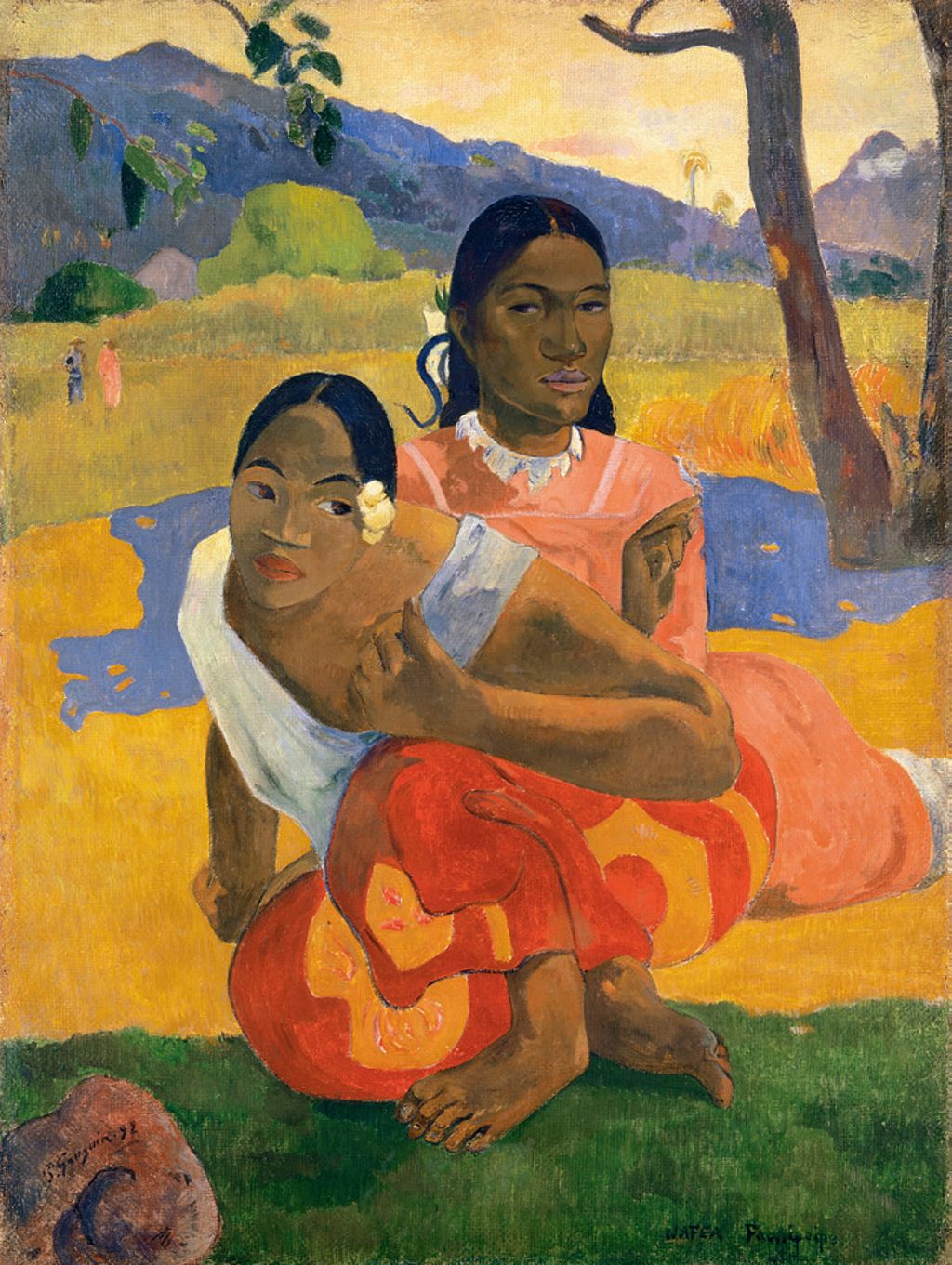Paul Gauguin (June 7th 1848 – 8 May 1903) was a stockbroker who began painting in his spare time and became serious about his hobby. His work went on to attract the interest of the Impressionists. Gauguin was one of the art world’s more colorful characters and referred to himself as a savage, and claimed to have Inca blood. Fond of alcohol and carousing, Gauguin eventually contracted syphilis. He was friends with fellow artist Vincent van Gogh.

In 1888, Gauguin and van Gogh spent several weeks together at van Gogh’s home in Arles, but their time together ended after van Gogh pulled a razor on Gauguin during an argument. That same year, Gaugin produced the now-famous oil painting “Vision After the Sermon.”

Gauguin was later recognized for his experimental use of colors and synthetist style that were distinguishably different from Impressionism. He often sought exotic environments, and spent time living and painting in Tahiti.

In 1901, Gauguin moved to the more remote Marquesas Islands. By this time, his health had been declining; he had experienced several heart attacks, and continued to suffer from his advancing case of syphilis. On May 3, 1903, Gauguin died at his isolated island home, alone. He was nearly out of money at the time—it wasn’t until after his death that Gauguin’s art began receiving great acclaim, eventually influencing the likes of Pablo Picasso and Henri Matisse.

Today, Gauguin would be a millionaire. His painting of “Nafea Faa Ipoipo” was sold by a Swiss family foundation to a group of museums in Qatar for nearly $300 million! The Qatari royal family has spent billions of dollars on Western art as part of ambitions to become a cultural and arts centre capable of rivalling the likes of Paris or Rome.






